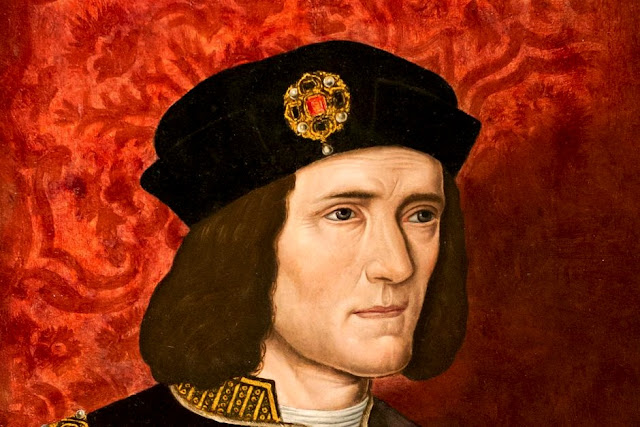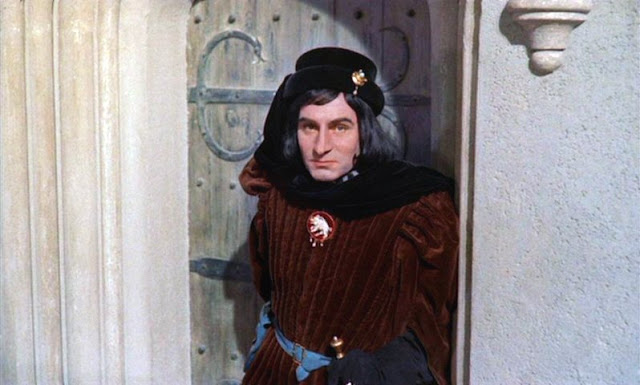Wednesday, September 26, 2012
Richard III Found
After 500 years, people are still fascinated by Richard III. The mysteries of his reign and death still intrigue, and Shakespear's play keeps the story current. Indeed there are energetic partisans on both sides of the Richard was a good/bad king debate. His hold on the imagination remains strong enough that there has not been another English king named Richard since.
Despite the two recent developments in the story of Richard, he remains an enigma. The likely discovery of his body, and the true site of the battle at Bosworth field (found in 2010) can tell us little new about his deeds, motives or psychology.
Its true he was slandered by the Tudors, anxious to demonize Richard in order to strengthen their shaky legitimacy. But that doesn't mean he wasn't a bad man. He did have his nephews declared bastards, he did execute William Hastings, he did persecute the Woodvilles and most importantly, he did allow harm to come to his nephews who were under his care and protection. Ultimately, his claim to the throne required his nephews out of the picture. His legitimacy is thus tied to their deaths in the Tower (I view the bodies found in 1674 as probably the princes).
But the main thing about Richard is Shakespear's play. Without that, he would be as one dimensional as any other English Medieval king. Which image is more compelling, the stern man in the portait above, or the skulking, charming villain embodied by Olivier below?
But Shakespeare wrote for the ages, not simply the Tudors. He used Richard to present a view of how power is acquired, used and kept. In particular, how Richard's talents for getting power by guile were overwhelmed by his inability to wield it effectively or defend it. Shakespeare shows that without legitimacy, the crown is an empty vehicle. And Richard, because of his sins, could not hold it.
At this remove, it is clear that Richard was the last Medieval king of England. The dynastic squabbles that had consumed England for 200 years came to an end with him, the ultimate product of that environment. Although there were rebellions and pretenders aplenty thereafter, none ever came close to derailing a sitting English monarch. The only two removed subsequently (Charles 1 and James II) lost their thrones due to politics, not dynastic disputes.
So you have to separate Richard the man from Richard the Shakespeare character. Because Shakespeare wasn't writing history. His Richard was a caricature of the real king, a vehicle for Shakespeare's moral tale. And the more compelling his caricature, the more relevant the morality. In any case, the historical mysteries that fascinate are those who's answers lie tantalizingly out of reach. Where just one more bit is needed to complete an otherwise confusing puzzle. After 500 years, I think that's the way Richard will remain. Just out of reach.
==========
BTW, the Olivier movie is terrific. I've written about it before.
==========
UPDATE!
February 4, 2013.
Scientists confirm the body was Richard's.


